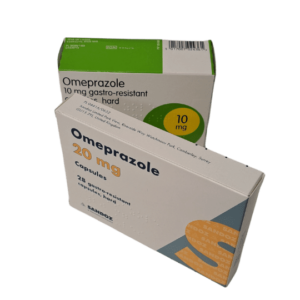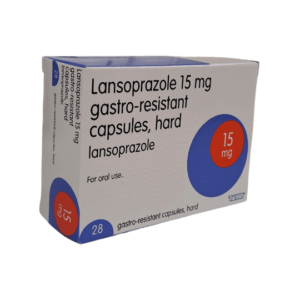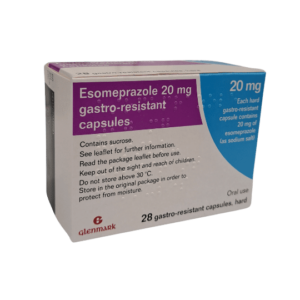Acid reflux, also known as gastroesophageal reflux disease (GERD), is a condition in which stomach acid flows back up into the oesophagus, causing a burning sensation in the chest or throat. There are several treatments for acid reflux, including lifestyle changes, medication, and surgery.
Here are some of the most common acid reflux treatment options:
♥ Avoid trigger foods: Certain foods can worsen acid reflux symptoms. Common trigger foods include caffeine, alcohol, chocolate, spicy or fatty foods, citrus fruits, and tomatoes.
♥ Eat smaller meals: Eating smaller, more frequent meals can help reduce the amount of acid in the stomach.
♥ Maintain a healthy weight: Being overweight or obese can increase the risk of developing acid reflux.
♥ Don’t lie down after eating: Wait at least 2-3 hours after eating before lying down or going to bed.
♥ Elevate the head of your bed: Raising the head of your bed by 6-8 inches can help prevent stomach acid from flowing back into the oesophagus.
♥ Antacids: Over-the-counter antacids can help neutralize stomach acid and relieve symptoms.
♥ H2 blockers: H2 blockers, such as famotidine and ranitidine, reduce the production of stomach acid.
♥ Proton pump inhibitors (PPIs): PPIs, such as omeprazole and esomeprazole, also reduce stomach acid production, but are typically more effective than H2 blockers.
You can buy the omeprazole capsules or lansoprazole capsules online from our Online Chemist private doctor. Simply complete the online consultation below and order, our clinician will privately prescribe the treatment if suitable and Online Chemist will dispense and dispatch that for you.



⇒ Avoid smoking and tobacco products, as they can worsen symptoms and increase the risk of developing GERD (acid reflux).
⇒ Wear loose-fitting clothing and avoid tight belts or waistbands that can put pressure on the stomach and exacerbate symptoms.
⇒ Practice stress-reducing techniques, such as meditation or yoga, as stress can increase acid production and aggravate symptoms.
⇒ Keep a food diary to track which foods trigger your symptoms, so you can avoid them in the future.
⇒ Chew gum after meals, which can increase saliva production and help neutralise stomach acid.
⇒ Drink plenty of water to help flush stomach acid out of the oesophagus and reduce symptoms.
⇒ Try over-the-counter herbal remedies, such as ginger or chamomile tea, which can have a soothing effect on the digestive system.

Start a free consultation now!
Acid reflux is a common condition that affects millions of people worldwide. It is estimated that 10-20% of the Western population experience acid reflux symptoms on a regular basis.
Acid reflux occurs when stomach acid flows back into the oesophagus, causing a burning sensation in the chest and throat, known as heartburn.
Acid reflux can be caused by a variety of factors, including certain foods, obesity, pregnancy, smoking, and certain medical conditions.
Left untreated, acid reflux can lead to serious complications, such as oesophageal damage, chronic cough, and even cancer.
The most common treatments for acid reflux include lifestyle changes, such as avoiding trigger foods and losing weight, as well as over-the-counter or prescription medications that reduce stomach acid.
In severe cases of acid reflux, surgical interventions may be necessary, including fundoplication and LINX implantation.
Acid reflux can often be managed effectively with a combination of lifestyle changes and medications, allowing patients to experience relief from their symptoms and maintain good quality of life.
It is important to see a doctor if you experience frequent or severe acid reflux symptoms, as this may indicate a more serious condition and require more advanced treatment.
Acid reflux is caused by a malfunction of the lower oesophageal sphincter (LES), which is the muscular valve that separates the stomach from the oesophagus. When the LES doesn’t close properly, stomach acid can flow back into the oesophagus, causing symptoms of acid reflux. Other factors that can contribute to the development of acid reflux include being overweight, smoking, and eating a diet high in fat or spicy foods.
The most common symptoms of acid reflux are heartburn, regurgitation, and a bitter taste in the mouth. Other symptoms can include chest pain, difficulty swallowing, and a persistent cough.
Doctors can usually diagnose acid reflux based on a person’s symptoms and medical history. In some cases, additional tests may be necessary, such as an endoscopy or a pH monitoring test.
Say hello to a life without acid reflux. Try our treatment services today.
Lifestyle changes that can help manage acid reflux include avoiding trigger foods, eating smaller meals, maintaining a healthy weight, and not lying down immediately after eating. Elevating the head of the bed and quitting smoking can also be helpful.
Medications used to treat acid reflux include antacids, proton pump inhibitors (PPIs), and H2 blockers. These medications work by reducing the amount of acid produced in the stomach, which can help alleviate symptoms of acid reflux.
Stop living with the pain of acid reflux. Our expert team can help you find relief. Start free consultation today!
If left untreated, acid reflux can lead to complications such as oesophagitis (inflammation of the oesophagus), oesophageal strictures, and Barrett’s oesophagus (a precancerous condition). In rare cases, acid reflux can also lead to oesophageal cancer.
Don’t let acid reflux ruin your day. Try our effective treatment options today. Start free consultation.
Yes, certain foods can trigger acid reflux symptoms. Common trigger foods include spicy or fatty foods, acidic foods like citrus and tomatoes, and chocolate.
Acid reflux affects men and women equally.
Yes, stress can worsen acid reflux symptoms. This is because stress can increase the production of stomach acid and cause the muscles in the digestive tract to contract, which can make acid reflux symptoms worse.
Yes, acid reflux is common during pregnancy, especially in the second and third trimesters. This is because the growing foetus can put pressure on the stomach and cause the contents to flow back into the oesophagus.
Yes, losing weight can help alleviate acid reflux symptoms, especially if a person is overweight or obese. This is because excess weight can put pressure on the stomach and cause the contents to flow back into the oesophagus.
Exercise can sometimes trigger acid reflux symptoms, but this is not true for everyone. In fact, regular exercise can help reduce the frequency and severity of acid reflux symptoms in some people.
Yes, over-the-counter antacids are generally safe to use for occasional acid reflux symptoms. However, they should not be used for more than two weeks without consulting a doctor.
Yes, acid reflux can cause chest pain, which is often mistaken for a heart attack. However, chest pain caused by acid reflux is usually a burning sensation that occurs in the upper abdomen or lower chest.
Yes, acid reflux can cause a chronic cough, which is usually a dry and persistent cough that is not associated with a respiratory infection.
Yes, some medications can cause acid reflux symptoms as a side effect. These medications include NSAIDs, certain antibiotics, and some antidepressants.
National Health Service (NHS): Gastro-oesophageal reflux disease (GORD)
British Society of Gastroenterology: Guidelines for the management of gastroesophageal reflux disease
Patient.info: Acid Reflux and Oesophagitis
Association of Upper Gastrointestinal Surgeons of Great Britain and Ireland: Gastro-Oesophageal Reflux Disease (GORD)
British Dietetic Association: Diet and Gastro-Oesophageal Reflux Disease (GORD)
Complete consultation for your selected condition and order your medication.
Please answer the health questionnaire honestly, this will ensure that the medication you are requesting is right for you.
The UK registered prescriber will review your questionnaire and approve your order. In some cases, the prescriber may specify a preferred treatment.
Your treatment will be sent directly from our NHS online pharmacy, Online Chemist based in Norfolk.
The General Pharmaceutical Council (GPhC) and other UK health organisations have produced a handy guide to help people going online for medicines or treatment.
Read the guideline here
If you have a medical emergency do not use this service.
Please contact your own GP, visit Accident and Emergency or call 999 or 111 immediately.

Online Chemist
82 Middleton Road
Gorleston
Great Yarmouth
Norfolk, NR31 7AH
Phone: 01493 600610
Email: info@onlinechemistuk.net
Superintendent Pharmacist:
Obaidullah Zaman
BPharm, MPharm, PGDip (Pharmacy), MRPharmS, IP
GPhC Reg. Number: 2083409
Pharmacy Premises GPhC Reg. Number: 9011159
Monday 09:00 – 17:00
Tuesday 09:00 – 17:00
Wednesday 09:00 – 17:00
Thursday 09:00 – 17:00
Friday 09:00 – 17:00
Saturday Closed
Sunday Closed
Click here for driving directions
OnlineChemist is a trading name of Nomaz Limited.
Registered in England – 11349276.
© 2025 All rights reserved.